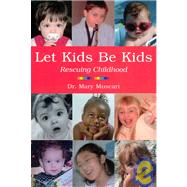 Tips on spotting the warning signs of cyberbullying and how to help your child deal with the issue, from Mary Muscari, associate professor at Binghamton University, State University of New York, and author of
Tips on spotting the warning signs of cyberbullying and how to help your child deal with the issue, from Mary Muscari, associate professor at Binghamton University, State University of New York, and author of
Not My Kid: 21 Steps for Raising a Nonviolent Child and Let Kids be Kids:Rescuing Childhood. Cyberbullying, the sending or posting of harmful or cruel text or images, using the Internet or other digital communicationdevices, affects almost half of today’s teens. Cyberbullying messagesand images may be posted on personal, web sites or blogs, ortransmitted via email, discussion groups,  chat, Instant Messenger (IM),text and smart phones.
Cyberbullies, mostly ages 9 to 14, use the anonymity of the Web to dispense pain without witnessing the consequences. Many cyberbullies are unrepentant, and their numbers are staggering, especially in affluent areas where technology is prominent.
According to Cyberbullying.org, the bullying techniques are as inventive as they are cruel:
• Sending cruel, vicious, and sometimes threatening messages.
• Creating web sites that have stories, cartoons, pictures, and jokes ridiculing others.
• Posting pictures of classmates online and asking students to rate them, with questions such “Who is the biggest ___ (add a derogatory term)?”
• Posting unflattering photos of peers on the Web.
• Taking a picture of a person in the locker room using a digital phone camera and sending that picture to others.
• Altering pornographic photos by adding a peer’s face to the image and sending it to porn sites or posting it in a blog.
• Breaking into an e-mail account and sending vicious or embarrassing material to others.
• Engaging someone in IM, tricking that person into revealing sensitive personal information, and forwarding that information to others.
• Criticizing or defaming teachers and administrators on the Web.
Cyberbullying may more harmful than traditional bullying because:
1) There is no escape; cyberbullying runs 24/7.
2) The hurtful material can be globally distributed and is often irretrievable.
3) The bullies can be anonymous.
4) Children avoid telling their parents, fearing greater retribution, as well being forbidden to use the Internet.
To prevent cyberbullying, teach your kids to:
• Report negative messages to you or their teacher
• Not pass along negative messages to others – don’t repeat it, just delete it.
• Set up blocks to messages from cyberbullies.
• Respect the rights and feelings of others in cyberspace.
Mary Muscari is an associate professor in the Decker School of Nursing at Binghamton University, State University of New York
Topics areas include parenting, from toddler age and up, especially teens. She has conducted a number of parenting workshops around the country; most popular topics: keeping kids safe from predators (‘live’ and Internet), bullying, raising nonviolent kids
Parenting books include:
Everything Book: Raising Adolescent Girls (Moira Mc Carthy with Dr. Mary Muscari) (2008)
Everything Book Raising Adolescent Boys (Robin Weiss with Dr. Mary Muscari) (2008)
Let Kids be Kids: Rescuing Childhood (2006)
Not My Kid 2: Protecting your Kids from the 21 Threats of the 21st Century (2004)
Not My Kid: 21 Steps to Raising a Nonviolent Child (2002)
Source: Binghamton University, State University of New York , Via Newswise
